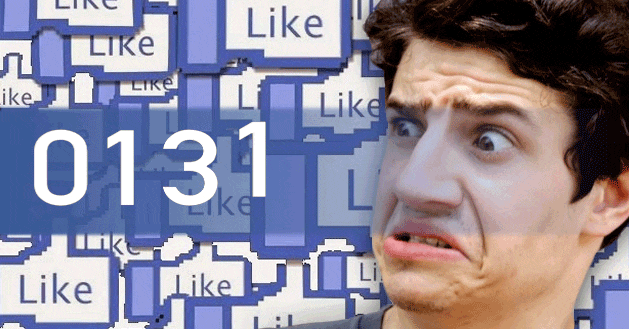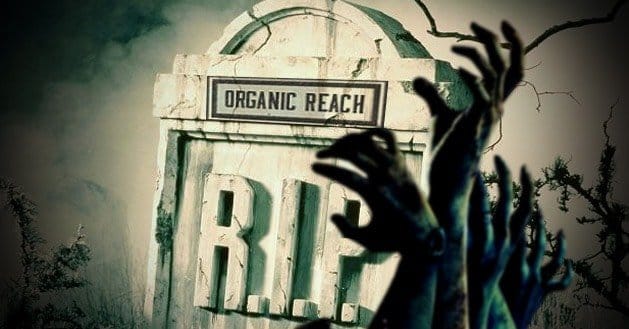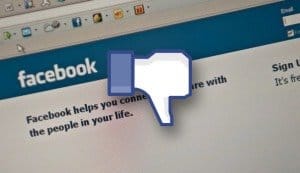 Written by ContentPowered.com
Written by ContentPowered.com
IT seems like every moth there’s a new tale about how Facebook is failing a business, how it’s a money sink, how Facebook has decreased organic reach or how the whole thing is ineffective at the most basic level. Old pros swear by it as a marketing tool, but new businesses find it tough going. Is it even worth accumulating Facebook likes these days?
There are, essentially, three reasons people declare Facebook to be valueless for marketing.
Likes Are Useless for SEO
This is the first and most obvious argument. Likes are not a SEO factor. Two identical pages, one with 10 likes and one with 10,000, would rank the same if they posted the same content. There’s no refuting this point; Google straight up says that it doesn’t consider social metrics like follower count or likes on a post as part of SEO. The reason for this stems from their experiments with a live search using Twitter data; Twitter and Google had a falling out, Twitter cut off the data streams and Google was left with a service rendered largely useless. Unwilling to make the same mistake again, Google vowed to ignore any data it can’t reliably record. So, this is one valid complaint against using Facebook for marketing; it doesn’t directly help your SEO performance.
Organic Reach is Dead
This is the new biggest gripe with Facebook. The company has been slowly decreasing how many users see your content each time you post it. It’s all about the three types of reach: organic, paid and viral.
- Organic: these are the people who see your content when you post it directly.
- Paid: these are the people who don’t see your content unless you pay to promote it.
- Viral: these are the people who see your content when someone who has already seen it shares it.
Organic reach gives Facebook nothing. Paid reach earns Facebook money. Viral reach cannot be controlled by Facebook themselves. Facebook wants more money, so the company demotes organic reach as an incentive to increase paid reach.
The result – and the argument against Facebook – is that it’s decreasingly effective as a marketing channel, and to maintain its utility, you need to pay more and more money to maintain the same level or reach across both organic and paid numbers.
The Profiles Following You are Fake
Facebook has a problem with fake accounts. There are people making benign accounts for their unborn children or their pets. There are people making fake accounts for roleplaying characters or pop culture icons. These are mostly harmless. The harmful accounts are the ones created by the thousands in third world countries, and used by fan sellers who levy them to follow a business when that business pays for them.
The thing about fake accounts is that they dilute your organic reach. Every time you post content and that content is shown to a fake account, that’s one legitimate view you’re losing. Fake accounts, for obvious reasons, are never going to become engaged users and they will never convert into paying customers. They simply clutter your feed and dilute your message. Worse; Facebook makes it difficult or impossible to go through your fans and clean them up.
Now let’s look at the other side of the argument; why Facebook is still relevant.
Likes are Valuable Social Proof
If you’re investigating a business, and you’re not sure whether or not that business is legitimate, the first thing you’re going to do is run a simple Google search for them. Chances are you’re going to find their Facebook page, if they have one. This tells you a lot about a company. If they don’t have a Facebook page, maybe they’re new, maybe they don’t care, or maybe they’re a scam. If they have one, but it looks largely abandoned, it shows the company doesn’t care to network with their followers. If they have an active Facebook page with a large, engaged following, it means you’re reasonably safe in trusting that business with your time and money. Maybe you’re not going to convert based on the presence of a Facebook page, but you might follow them to watch and see if they’re trustworthy. You might even click through to their blog, to read what they have to say.
Flip that around and look at it from the perspective of a business; which opinion do you want users to form about you?
Any User View is Good
This point specifically refutes the idea that a decreasing organic reach is making Facebook not worth the time and effort. The refutation is simple. Facebook can be used for free, in terms of money. It can be used with an incredibly low cost in time. This makes it one of the most inexpensive possible forms of advertising. If anyone – even one single person – sees your content through your Facebook page, that’s an ad impression you didn’t have to pay for. That alone is worth it. As your audience grows, the time and money required to maintain the page grows as well, but so too does the mass of free advertising. Even if 3% instead of 5% of your audience sees your posts organically, that’s still 3% of however many followers you have seeing your content with little to no investment on your part.
Fake Profiles Aren’t a Problem
Examine the section about fake followers above. Notice anything that stands out? The whole point of fake followers being a problem is that they don’t do anything naturally. They don’t take actions that benefit you. In most cases, other than liking pages, they’re more or less abandoned.
So how do you end up with them following your page?
Fake followers are generally only a problem for businesses who tried to game the system by purchasing followers. This doesn’t work. It hasn’t worked for years.
Sure, a stray bot spam account might follow your page in an attempt to spam your followers, but they aren’t a problem. A single bot follower, or even a couple dozen accumulated over time, don’t hurt your performance. Get rid of them when you see them, or ignore them as long as they aren’t actively spamming your page. They won’t matter.
Advertising Cheaply is Easy
Many people like to cry about how ineffective Facebook’s advertising system is. They pay and pay, but they never receive their money’s worth in terms of engaged followers and conversions. It’s just a fault in the platform!
Well, it’s really not. Facebook can be one of the most effective ad campaigns, dollar for dollar, if you use it properly. You just need to take the time to properly target your audience. Even a few basic adjustments to your targeting can have a huge effect. Blacklist countries you don’t sell in. A little retargeting and targeting users identical to your fan profiles will pull in way more interested leads than widespread, untargeted advertising.
Facebook is a Supplement to a Well-Rounded Ad Campaign
In the end, the value of Facebook is that it’s a good supplement. Social proof, the conversion funnel, an ad platform with a billion users; all as a tool used as part of a larger campaign. Facebook alone is valuable in a basic sense. Facebook as a tool in a comprehensive campaign is invaluable.


